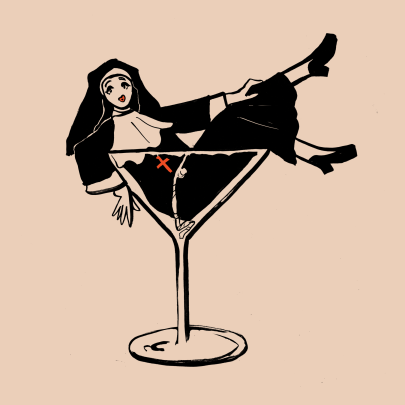Aug 18, 2013 Theatre
Silo Theatre
Herald Theatre
August 16, 2013
Australian playwright Andrew Bovell’s more recent work When The Rain Stops Falling produced by the Silo in 2010 begins with a fish dropping from the sky to land at the feet of the main protagonist. That excellent play, set in the near future, concerns itself with climate change and environmental ruin, a wider global picture playing out around the disintegrating family relationships of the characters.
Speaking in Tongues is also concerned with relationships, but purely of those between men and women, with little of the wider world intruding. In the opening scene two couples occupy two motel rooms. All are married, but not to each other, and all are intent on committing adultery. Dialogue is quick and witty, with lines crossing over the top of one another and at times forming a chorus. Despite the intentions of the characters, the scene intentionally lacks eroticism. All are nervous, all are wracked with guilt and it seems the desire to take a lover is for each of them born of boredom and fear of growing old, than from any longing for sexual adventures. They are numbed by late 20th century life, all confess to wanting to ‘feel something’. It’s almost as if they are forcing themselves to commit adultery – unsuccessfully in one case – as a kind of necessary, seminal human experience. It is, as Sonja (Alison Bruce) later explains ‘calculated betrayal’.
First performed in 1996, Speaking in Tongues was the genesis of Bovell’s screenplay for Lantana, a popular Australian movie starring Anthony LaPaglia, Geoffrey Rush, Kerry Armstrong and Barbara Hershey. Seventeen years later the play feels dated only in the use of technology. There is talk of letters, and a woman stranded at night on a country road walks to find a phone box – quaint since the proliferation of mobile phones. Otherwise, the play survives, and because of its subject matter could very well be set in any period of history. How much do men and women change, or our notion of marriage?
Alison Bruce, Oliver Driver, Luanne Gordon and Stephen Lovatt play nine characters between them. All performances are lucid, defined and clear. Characters talked about in the first half appear in the second, while the sparkling dialogue continues to intersect, mimic and reflect. Australian accents are not attempted, but interestingly the cadences and sentence structure are there. Cop Leon and neighbour Nick (Stephen Lovatt) seem particularly Australian characters, while Oliver Driver’s three chaps are sensitive, repressed quintessential New Zealanders.
John Verryt’s glassy, reflective set is vibrantly present from the beginning and moves closer to the audience throughout the play, creating a sense of claustrophobia and entrapment. Paul McLaney’s soundscape brilliantly expresses and deepens shifting stories and states of mind.
Silo’s production is slick and polished, with director Shane Bosher’s attention to detail paying off to bring us a poetic, nuanced examination of love, trust and fear of commitment.
Until September 14.
Photographed by Andrew Malmo.





